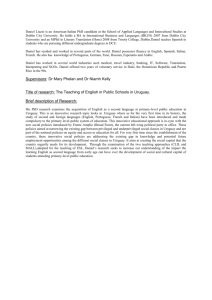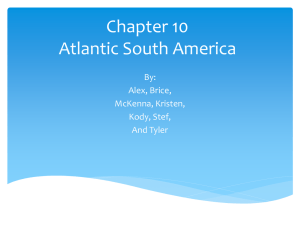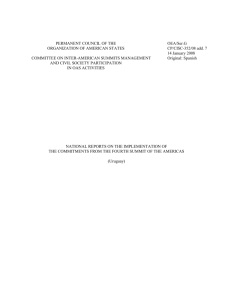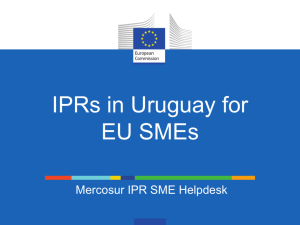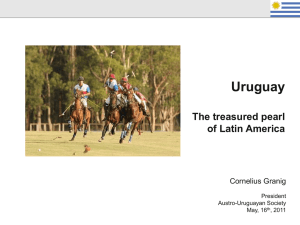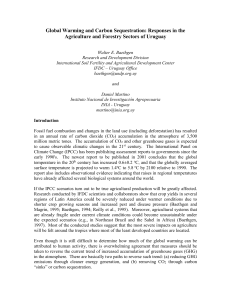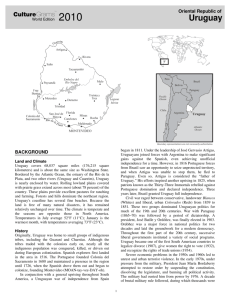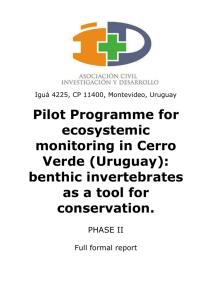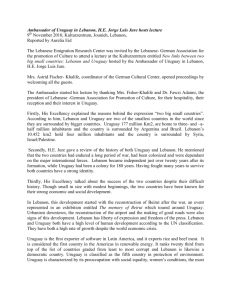m_06_questionnaire - Latin America IPR SME Helpdesk
advertisement
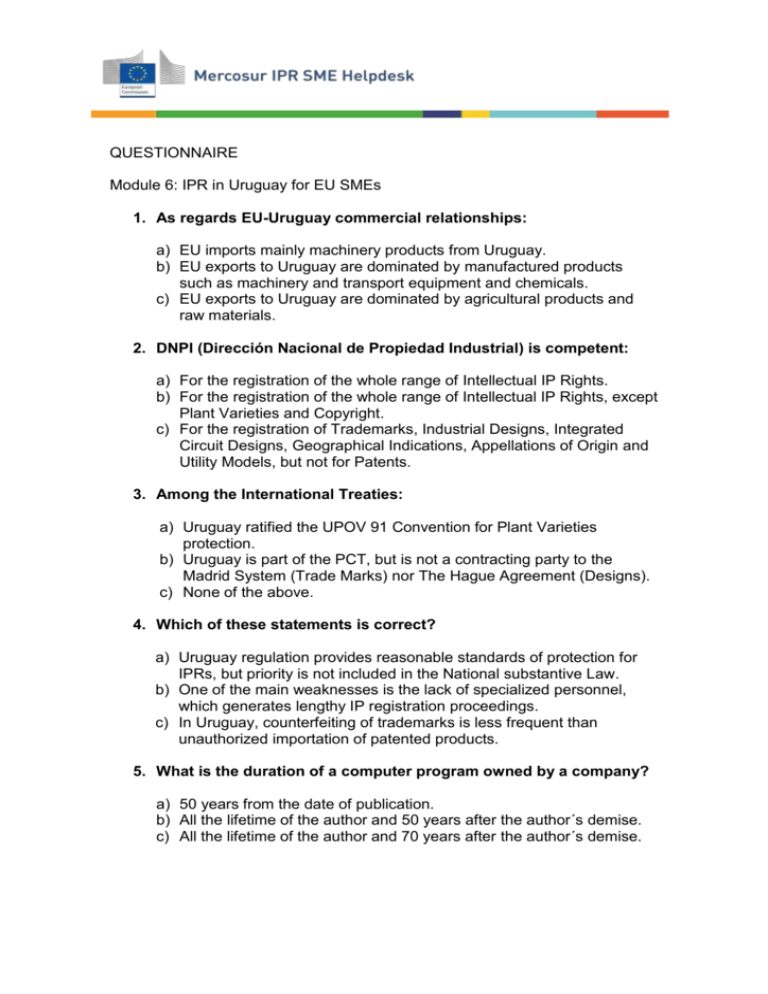
QUESTIONNAIRE Module 6: IPR in Uruguay for EU SMEs 1. As regards EU-Uruguay commercial relationships: a) EU imports mainly machinery products from Uruguay. b) EU exports to Uruguay are dominated by manufactured products such as machinery and transport equipment and chemicals. c) EU exports to Uruguay are dominated by agricultural products and raw materials. 2. DNPI (Dirección Nacional de Propiedad Industrial) is competent: a) For the registration of the whole range of Intellectual IP Rights. b) For the registration of the whole range of Intellectual IP Rights, except Plant Varieties and Copyright. c) For the registration of Trademarks, Industrial Designs, Integrated Circuit Designs, Geographical Indications, Appellations of Origin and Utility Models, but not for Patents. 3. Among the International Treaties: a) Uruguay ratified the UPOV 91 Convention for Plant Varieties protection. b) Uruguay is part of the PCT, but is not a contracting party to the Madrid System (Trade Marks) nor The Hague Agreement (Designs). c) None of the above. 4. Which of these statements is correct? a) Uruguay regulation provides reasonable standards of protection for IPRs, but priority is not included in the National substantive Law. b) One of the main weaknesses is the lack of specialized personnel, which generates lengthy IP registration proceedings. c) In Uruguay, counterfeiting of trademarks is less frequent than unauthorized importation of patented products. 5. What is the duration of a computer program owned by a company? a) 50 years from the date of publication. b) All the lifetime of the author and 50 years after the author´s demise. c) All the lifetime of the author and 70 years after the author´s demise. 6. When registering an Intellectual Property Right: a) Foreign applicants must always appoint a local legal representative. b) Foreign applicants need to appoint a local legal representative except for Copyright works and computer programs registration. c) Foreign applicants do not need to appoint a local legal representative, except for computer programs registration. 7. According to Uruguayan regulation, the duration of a Utility Model is: a) 20 years from the filing date. b) 10 years from the granting date. c) 10 years from the filing date. 8. In Uruguay, patenting of new uses of patented products (second use)… a) Is allowed. b) Is not permitted. c) Is allowed as far as it concerns diagnostic, therapeutic or surgical methods for the treatment of persons or animals. 9. If an invention is disclosed before the patent application date: a) It would be rejected for lack of novelty. b) It could be patented, provided that it was directly or indirectly disclosed by the inventor within the previous 12 months since Uruguayan Law provides for a 1-year grace period. c) It could be patented, as long as the disclosure took place in a PCT signatory country. 10. With regards the patentability requirements: a) Patents must be new, inventive and have industrial applicability, while Utility Models must be new and have industrial applicability. b) The analysis of the inventive step is less demanding in case of Utility Models. c) Both Patents and Utility Models must imply an inventive step and have industrial applicability. 11. Industrial Design protection lasts: a) 10 years from the filing date. b) 25 years from the filing date. c) 10 years from the filing date, with the possibility to renew it for 5 years more. 12. What type of trademarks can you register in Uruguay? a) Word, figurative and combined trademarks. b) Any sign, including tactile, taste and smell marks. c) Word, figurative and combined trademarks, plus sound marks and three-dimensional marks. 13. If you want to register your trademark in Uruguay to protect products in different classes from Nice Classification: a) b) c) You just need to file a single trademark application, since the trademark application system in Uruguay is a multiclass one. It is not possible to protect products from different classes under the same trademark. You can apply for a one-class trademark registration for each class of products intended to protect. 14. The duration of a trademark in Uruguay is: a) 10 years from the filing date. b) 10 years from the filing date, but it can be indefinitely renewed for consecutive ten-years periods. c) 10 years from the granting date, but it can be indefinitely renewed for consecutive ten-years periods. 15. Which statement is correct? a) There is no voluntary registration of IPR holders in Uruguay, but Custom Authorities check the DNPI database regularly. b) Uruguay Customs Authorities provide with a voluntary registration of IPR holders, which is free of charge. c) The voluntary registration of IPR holders is available in English and Spanish. ANSWERS TO QUESTIONNAIRE M04 (CHILE) Question Number 1 2 3 4 5 6 7 8 9 10 11 12 13 14 15 Right Answer B B C B A B C B B B C C A C B
